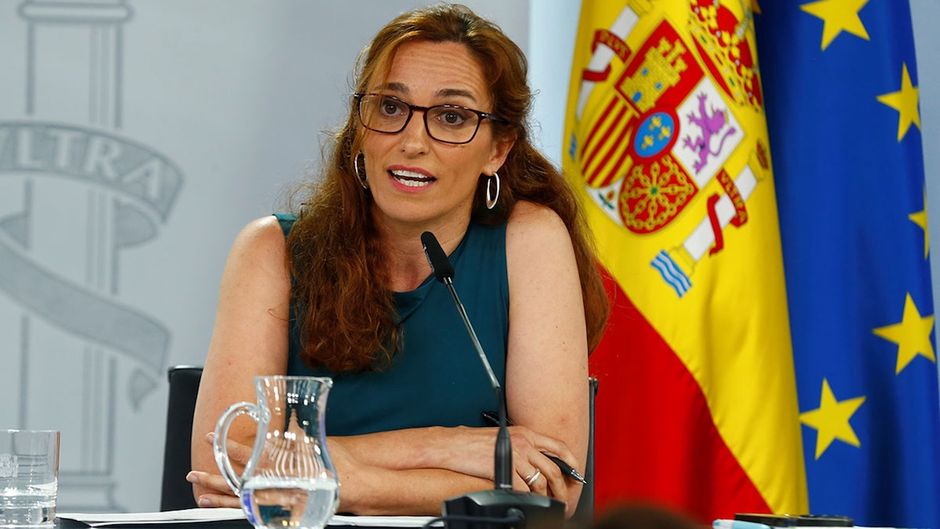Christian doctors in Spain view new lists of abortion objectors with concern
The protocol includes a total and a partial objection. Evangelical health workers say “it can be used to mark doctors who freely decide to object”.
Protestante Digital · MADRID · 18 DECEMBER 2024 · 13:10 CET

The abortion law reform approved by the Spanish government in May 2022 included the regulation of conscientious objection for health workers.
Last March, the Spanish minister of health, Mónica García, put this measure into practice with the creation of a list of health workers who conscientiously object to the practice of voluntary termination of pregnancy.
The ministry of health has now approved the protocol for the creation of that list.
García defended her understanding that abortion is “a fundamental right”. She lamented what she considers an “inadmissible breach” of the regulations “in some parts of our territory”, referring to the regions of Spain that have been critical of the abortion law reform of December 2022.
In 2023, over 103,000 abortions were completed in Spain, according to official numbers.
“There are no more excuses. We already have this common protocol”, the health minister told the media in a press conference. “Let's hope that the regions do their part and create this list so that public centres can plan and avoid mass objections, in order to prevent forced displacements of patients and referrals to the private sector”.
How does it work?
The protocol provides for two types of objection: total or partial. The first refers to health workers who refuse to intervene in an abortion under any circumstance.
The partial type includes some cases in which it is possible to object, such as at the request of the woman within the first 14 weeks of pregnancy; a serious risk to the woman's life up to 22 weeks; a serious risks to the baby also up to 22 weeks; or anomalies incompatible with life or extremely serious and incurable illness in the foetus.
The creation of a register of conscientious objectors will be done in each region and at the National Institute of Health Management. For now, the data will not be shared between territories, and access is restricted to those responsible for the management of human resources for abortions.
The list will include all professionals directly involved in the process of voluntary termination of pregnancy: gynaecologists and obstetricians, anaesthetists, family doctors, nurses and midwives.
Evangelical doctors: “It implies an unjustified control”
Although, according to the health ministry, the registry “aims to manage human resources related to abortion and not to discriminate against any professional”, some evangelical voices within the health sector are suspicious of the procedure.
"The list implies an unjustified control over doctors who freely decide to object. Undoubtedly, it can be used to ‘mark’ these doctors”, says Xesús Manuel Suárez, a doctor and secretary general of the Spanish Evangelical Alliance.
He also said it is a “poor” justification given by the government that “it needs to guarantee access to abortion, which is hindered by the number of objecting doctors”.
Suárez laments that the government “does not seem to have the same concern for guaranteeing medical assistance for people who need quality care”. “I have recently seen a type 1 diabetic patient in my private practice who does not receive quality medical care from the public health system. The Social Security endocrinologist sees him once a year and in between he is sometimes attended by a nurse on the phone. The government's interest in care should not be selective, so demanding for abortion and so relaxed for life-threatening illnesses”, underlines Suárez.
Tge government's position on health care “are not very credible, too conditioned by its ideological prejudices. You have to rule for everyone, not just for those who think like the government”, he adds.
Pedro Tarquis, also a doctor now retired, and director of Areópago Protestante, stresses that “you should never make a list of dissidents in relation to a law because it always generates suspicion about how it is going to be used, no matter how much it is said that it will be private”.
“What should be done is the opposite, i.e. a list of health professionals who are willing to participate in an abortion”, he points out.
Other reactions
Entities such as the Observatory for Religious Freedom and Freedom of Conscience and Professionals for Ethics expressed their rejection of the procedure approved by the ministry of health, saying that it “violates human rights and discriminates”.
“Conscientious objection is a fundamental right. Forcing a list of objectors goes against freedom of conscience and religion, because it forces people to declare their own beliefs”, they say.
They are also concerned about how it could affect the privacy of professionals as the register “could involve the collection and storage of sensitive personal information”, and even lead to “reprisals”.
“A list of objectors could open the door to reprisals or persecution of objectors in their workplaces”, they conclude.
One more year
Learn all about our #OneMoreYearEF campaign here (English).
Published in: Evangelical Focus - europe - Christian doctors in Spain view new lists of abortion objectors with concern
